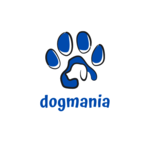Ensuring Optimal Protein Intake for Senior Dogs: What You Need to Know
As our beloved furry companions age, their nutritional needs evolve, and one crucial aspect to consider is their protein intake. Protein is essential for maintaining muscle mass, supporting immune function, and overall vitality in senior dogs. However, ensuring optimal protein intake for older canine friends requires a nuanced approach. In this article, we delve into the intricacies of senior dog nutrition and provide practical tips for meeting their protein needs.
Understanding the Importance of Protein for Senior Dogs
Protein serves as the building blocks for various tissues and organs in a dog's body, including muscles, skin, and hair. As dogs age, their metabolism slows down, and they may become less efficient at utilizing protein. Additionally, senior dogs may experience muscle loss or other age-related conditions that necessitate higher protein requirements to support their overall health and well-being.
Protein also plays a vital role in maintaining a strong immune system, which becomes increasingly important as dogs age and their immune function may decline. Adequate protein intake can help bolster their immune response, reducing the risk of infections and diseases.
Factors to Consider When Choosing Senior Dog Food
When selecting food for senior dogs, it's essential to consider their specific nutritional needs, including protein requirements. Look for high-quality dog food formulated specifically for seniors, as these products are often tailored to meet the needs of aging dogs.
Opt for formulas that feature easily digestible sources of protein, such as lean meats like chicken, turkey, or fish. Avoid foods with excessive fillers or low-quality protein sources, as these may be harder for senior dogs to digest and utilize effectively.
It's also worth noting that some senior dogs may have dietary sensitivities or medical conditions that require specialized diets. Consult with your veterinarian to determine the best food options for your senior dog based on their individual needs and health status.
Monitoring Protein Intake and Adjusting as Needed
While guidelines for protein intake in senior dogs can provide a helpful starting point, it's essential to monitor your dog's health and adjust their diet accordingly. Keep an eye on their weight, muscle condition, and overall energy levels, as these can provide valuable insights into whether they're receiving adequate protein.
If you notice signs of muscle wasting or weight loss, consider increasing your dog's protein intake. Conversely, if your dog becomes overweight or develops health issues related to excessive protein consumption, consult with your veterinarian about adjusting their diet accordingly.
Incorporating Protein-Rich Treats and Supplements
In addition to their regular diet, senior dogs can benefit from protein-rich treats and supplements to ensure they're meeting their nutritional needs. Look for treats made from high-quality protein sources, such as freeze-dried meats or jerky, and avoid those containing fillers or artificial ingredients.
Supplements such as omega-3 fatty acids can also be beneficial for senior dogs, as they support joint health and cognitive function. Consult with your veterinarian before introducing any new supplements to your dog's diet to ensure they're safe and appropriate for your pet.
Maintaining Hydration and Overall Health
Proper hydration is essential for senior dogs, as dehydration can exacerbate age-related health issues and impact their overall well-being. Ensure your dog has access to fresh, clean water at all times and monitor their water intake, especially during hot weather or if they're particularly active.
Regular exercise is also crucial for maintaining muscle mass and overall health in senior dogs. Incorporate gentle activities such as short walks or low-impact play sessions into your dog's routine to help keep them fit and active.
conclusion
Ensuring optimal protein intake for senior dogs is essential for supporting their overall health and well-being as they age. By selecting high-quality dog food, monitoring their protein intake, and incorporating protein-rich treats and supplements as needed, you can help your senior dog thrive in their golden years. Remember to consult with your veterinarian for personalized advice and guidance tailored to your dog's individual needs. With proper nutrition and care, you can provide your senior dog with the foundation they need to enjoy a happy, healthy life for years to come.



leave me your thoughts here